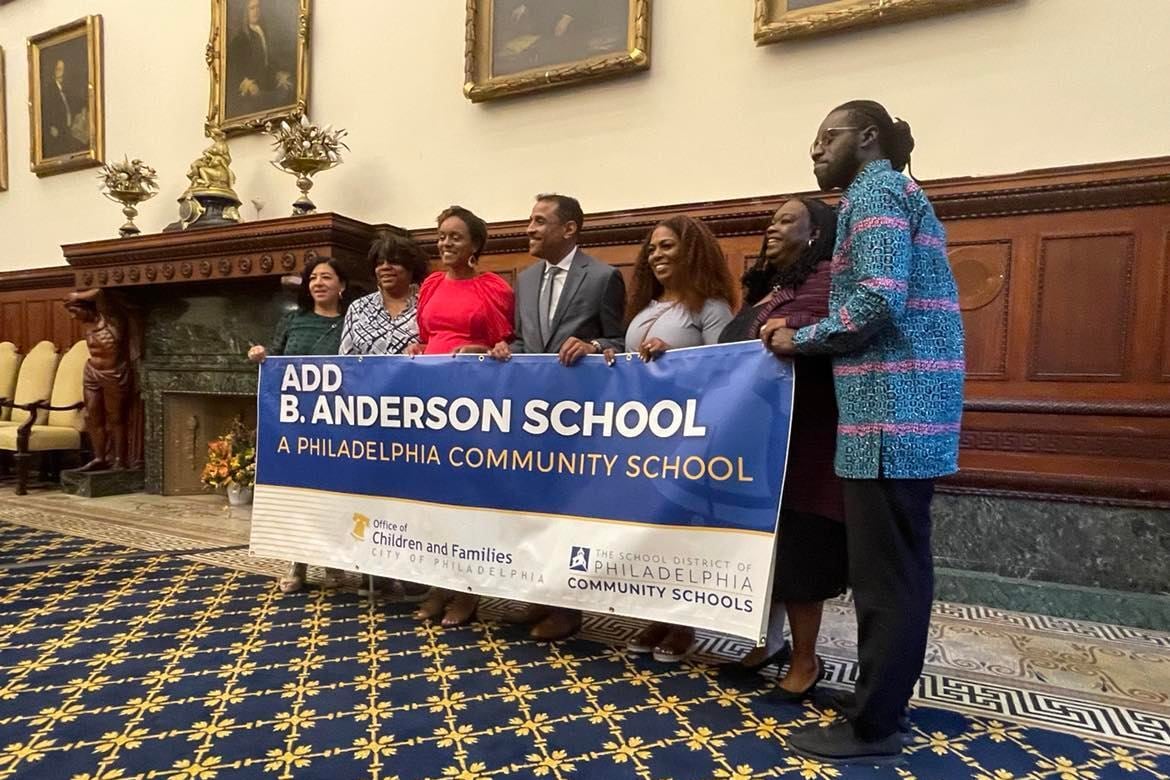Philadelphia Mayor Jim Kenney and City Council President Darrell Clarke announced Tuesday that the city is expanding its Community Schools program, which brings social services and other supports directly into school buildings.
Next year, the initiative will include 20 schools, up from 17 this year and nine when the program was launched in 2017. City funding will also increase from $9.8 million to $11.2 million, Kenney’s office said.
Community Schools, one of the mayor’s signature initiatives, seeks to make schools neighborhood service hubs in an effort to remove barriers to learning that children face in their everyday lives. Social services provided at these schools include trauma counseling, health screenings, family counseling, and referrals to city agencies and nonprofit groups. Staff at the school also try to help boost student attendance.
At a press conference, Kenney said the program is designed to “meet the needs of the whole child” and enhance community services in general.
Clarke recalled the time he and Kenney traveled to Cincinnati, which pioneered the concept. Inspired by what they saw, Kenney and Clarke came back to the city and started their own version.
The council president said the program builds connections between communities and their schools. “It made all the sense in the world,” he said.
Superintendent Tony Watlington Sr., in his first public appearance since his swearing-in ceremony last week, emphasized the importance of partnerships and cooperation between the district and the city.
“Schools are more than brick and mortar,” he said. “They are a vital part of their communities and the fabric of this city in bringing families and communities together and expanding opportunities. For schools to help students thrive, we need to work with partners to address the struggles and challenges our students face inside and outside the classroom.”
Principals from the three schools that are being added — Frankford High School, and Add B. Anderson and Paul S. Dunbar elementary schools — said that the need to address student mental well-being, especially trauma, has never been greater.
“Gun violence affects us almost daily,” said Frankford Principal Michael Calderone, citing students who witness it or are directly affected because their family members and friends are victims. At the same time, he said, “safe spaces … seem to dwindle by the day.”
And Principal Laurena Tolson of Add B. Anderson School in Southwest Philadelphia said the program helps remove inequities and ensure success for all children.
“I don’t subscribe to the belief that opportunities depend on ZIP code,” Tolson said.
The three new schools, like the others already in the program, will have case managers for social services and attendance, as well as after-school activities. A coordinator at each school tracks whether the services offered meet the local community’s greatest needs.
Program coordinators plan events and activities to help families understand attendance policies and make children more excited about coming to school.
Over the past year, the city has expanded case management services for social services and attendance in the community schools, along with activities outside of school hours, including arts and STEM programs.
The role of community schools “is to alleviate barriers that prevent students from coming to school,” said Maxwell Akuamoah-Boateng, the operations director for the Community Schools initiative in the city’s Office of Children and Families.
The program is paid for through the city’s tax on sweetened beverages. The city is tracking data about the initiative, and hopes to publish an evaluation in 2025 about its effects on attendance, students’ social and emotional health, and their academic performance.
Dale Mezzacappa is a senior writer for Chalkbeat Philadelphia, where she covers K-12 schools and early childhood education in Philadelphia. Contact Dale at dmezzacappa@chalkbeat.org.







